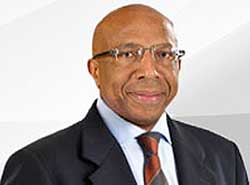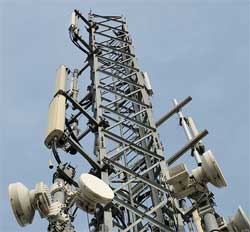Telkom says MTN, Vodacom working against SA's interests

Mobile termination rates are the rates operators must pay one another as compensation when their users make calls to numbers on other networks. High mobile termination rates are widely regarded as the cause of high telecommunication costs in South Africa.
The lowering of mobile termination rates‚ which is being managed by the Independent Communications Authority of SA (Icasa)‚ is intended to reduce retail call costs for customers.
However‚ Icasa's latest proposed rate changes and methodology are being challenged in the courts by both MTN and Vodacom on the grounds that the regulator has not followed the law and that the extent of the advantages provided to later entrants Cell C and Telkom Mobile is unprecedented and unfair.
Maseko said in his letter that the two mobile operators had hidden behind arguments that lower termination rates would compromise their capital investments and their returns to shareholders. "Yet both Vodacom and MTN had made enormous profits‚" he said‚ despite falling termination rates over the past three years.
Huge dividends
"During 2012‚ Vodacom shareholders received dividends of R12bn while MTN paid out almost R15bn‚" he said.

"Lower mobile termination rates create a more equitable playing field and - more importantly increase access to the modern economy through expanded communications for all South Africans. With Vodacom and MTN standing in the way of lowering mobile termination rates‚ I believe the companies are standing in the way of SA's future," he said.
He asked if the companies' actions are the best interests of the country?
Vodacom spokesman Richard Boorman said the company's chief executive Shameel Joosub had made his position clear last week in various statements and articles‚ arguing that he supported lower termination rates but objected to Icasa's methodology. He did not have further comments on Maseko's letter. MTN did not respond to requests for comment.
South Africa's unusually high mobile termination rates were introduced in 1994 to enable operators to recover costs from one another for calls across networks.
However‚ as is common‚ the termination rate was strongly asymmetrical: to help Vodacom and MTN establish their infrastructure‚ Telkom was required to pay higher termination rates to them than it received.
"As a result‚ Telkom had "subsidised" Vodacom and MTN to the cost of R50bn over two decades‚" Maseko said.

Icasa began reducing mobile termination rates along "a glide path" three years ago. While rates dropped from R1.27 before the reduction to 40c‚ the rates remains "way above" that of many other African countries‚ said Research ICT Africa executive director Alison Gillwald.
The glide path for the next three years will see prices drop to 20c this month and to 10c by March 2016.
But MTN and Vodacom would have to pay newer entrants Cell C and Telkom Mobile 39c‚ dropping to 26c in March 2016‚ due to a new asymmetrical scale designed to favour smaller competitors.
"The international norm is that this connection fee should be based on how much it costs the receiving network to carry this call‚" Joosub said in an opinion-page article in Business Day last week.
"To determine the present number‚ regulatory best practice is to conduct a detailed cost study. This is also something that is required in terms of South African law. We believe we are being entirely reasonable in expecting that the regulator respects this process‚" he added.
Gillwald said that while the issue was a complex one‚ Maseko was correct. "Telkom is right. MTN and Vodacom had an extraordinary termination rate asymmetry with Telkom over 20 years‚" she said.
While asymmetry was once again justified‚ the level of asymmetry being applied was supposedly unprecedentedly high. "However‚ this was also because termination rates had been so intransigently high before‚" she said.
"Telkom's open letter is correct. MTN and Vodacom have enjoyed key periods of asymmetry and enjoyed very high prices. They have also rolled out an enormous infrastructure that has improved access. While one wouldn't want to kill the golden goose‚ she was a very fat goose‚" said Gillwald.
Source: I-Net Bridge

For more than two decades, I-Net Bridge has been one of South Africa’s preferred electronic providers of innovative solutions, data of the highest calibre, reliable platforms and excellent supporting systems. Our products include workstations, web applications and data feeds packaged with in-depth news and powerful analytical tools empowering clients to make meaningful decisions.
We pride ourselves on our wide variety of in-house skills, encompassing multiple platforms and applications. These skills enable us to not only function as a first class facility, but also design, implement and support all our client needs at a level that confirms I-Net Bridge a leader in its field.
Go to: http://www.inet.co.za





































